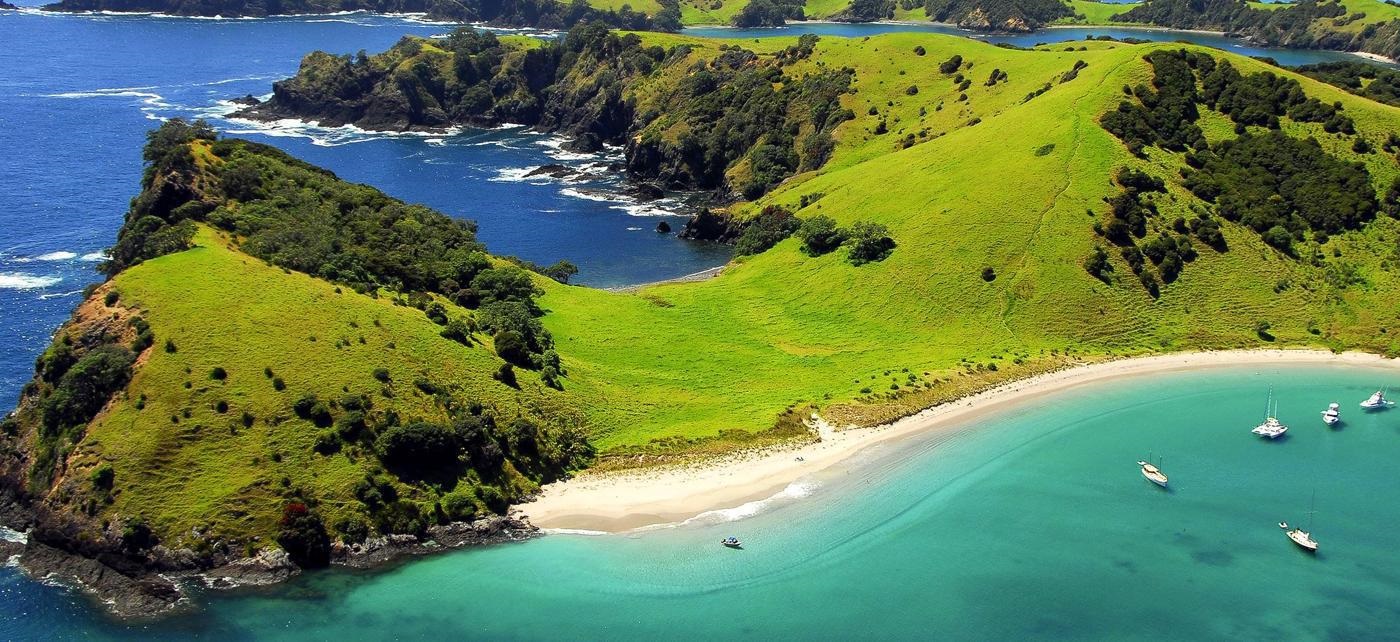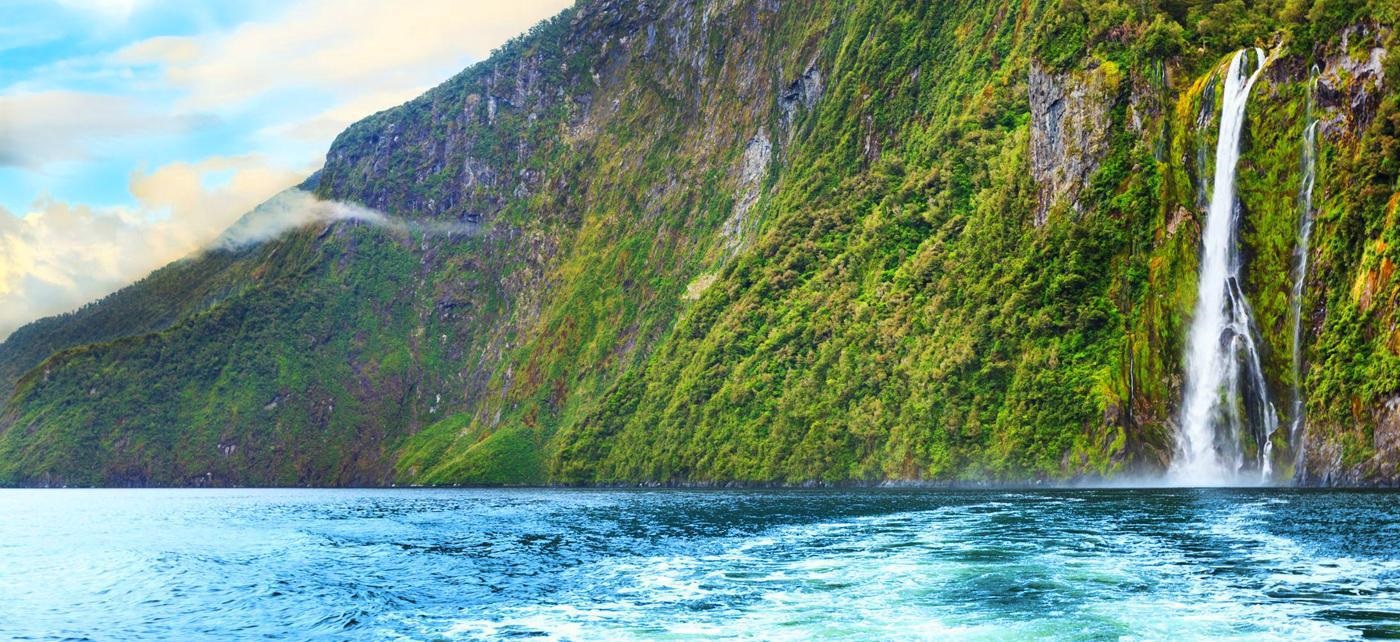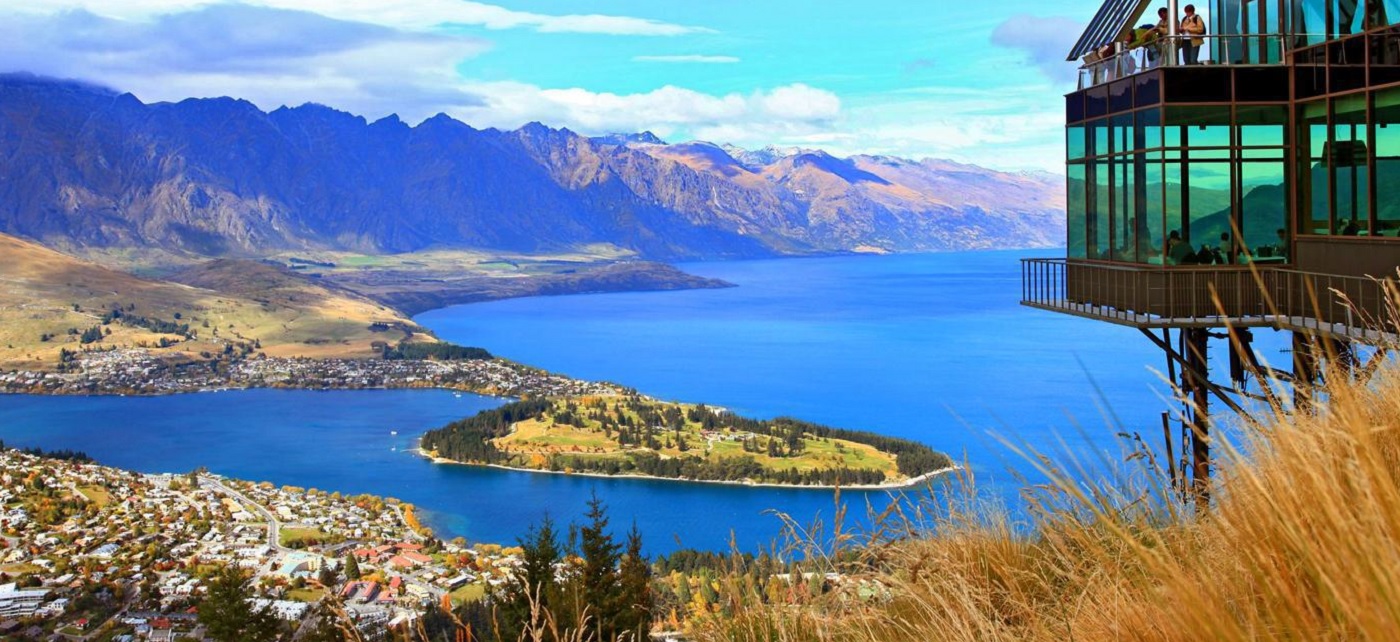New Zealand is an island country in the south-western Pacific Ocean comprising two main landmasses (the North Island and the South Island) and numerous smaller islands. The country is situated some 1,500 kilometers east of Australia across the Tasman Sea, and roughly 1,000 kilometers south of the Pacific island nations of New Caledonia, Fiji, and Tonga. Due to its remoteness, it was one of the last lands to be settled by humans. During its long isolation, New Zealand developed a distinctive fauna dominated by birds, many of which became extinct after the arrival of humans and introduced mammals. With a mild maritime climate, the land was mostly covered in forest. The country's varied topography and its sharp mountain peaks owe much to the uplift of land and volcanic eruptions caused by the Pacific and Indo-Australian Plates clashing underfoot.
Polynesians settled New Zealand in 1250–1300 AD and developed a distinctive Mâori culture, and Europeans first made contact in 1642 AD. The introduction of potatoes and muskets triggered upheaval among Mâori early during the 19th century, which led to the inter-tribal Musket Wars. In 1840 the British and Mâori signed a treaty making New Zealand a colony of the British Empire. Immigrant numbers increased sharply and conflicts escalated into the Land Wars, which resulted in much Mâori land being confiscated in the mid North Island.
Economic depressions were followed by periods of political reform, with women gaining the vote during the 1890s, and a welfare state being established from the 1930s. After World War II, New Zealand joined Australia and the United States in the ANZUS security treaty, although the United States later suspended the treaty after New Zealand banned nuclear weapons. New Zealanders enjoyed one of the highest standards of living in the world in the 1950s, but the 1970s saw a deep recession, worsened by oil shocks and the United Kingdom's entry into the European Economic Community. The country underwent major economic changes during the 1980s, which transformed it from a protectionist to a liberalized free-trade economy. Markets for New Zealand's agricultural exports have diversified greatly since the 1970s, with once-dominant exports of wool being overtaken by dairy products, meat, and recently wine.
New Zealand is a constitutional monarchy with a parliamentary democracy, although its constitution is not codified. Queen Elizabeth II is the Queen of New Zealand and the head of state. The Queen is represented by the Governor-General, whom she appoints on the advice of the Prime Minister. The Governor-General can exercise the Crown's prerogative powers (such as reviewing cases of injustice and making appointments of Cabinet ministers, ambassadors and other key public officials) and in rare situations, the reserve powers (the power to dismiss a Prime Minister, dissolve Parliament or refuse the Royal Assent of a bill into law). The powers of the Queen and the Governor-General are limited by constitutional constraints and they cannot normally be exercised without the advice of Cabinet.
Mâori quickly adopted writing as a means of sharing ideas, and many of their oral stories and poems were converted to the written form. Most early English literature was obtained from Britain and it was not until the 1950s when local publishing outlets increased that New Zealand literature started to become widely known. Although still largely influenced by global trends (modernism) and events (the Great Depression), writers in the 1930s began to develop stories increasingly focused on their experiences in New Zealand. During this period literature changed from a journalistic activity to a more academic pursuit. Participation in the world wars gave some New Zealand writers a new perspective on New Zealand culture and with the post-war expansion of universities local literature flourished.


